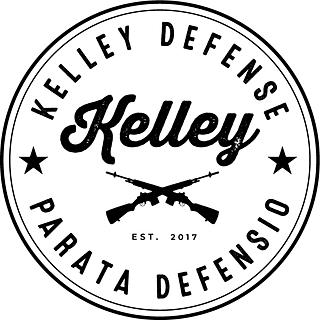The Essential Role of Training Programs in Achieving Organizational Excellence and Continuous Improvement
- Mark Kelley
- Oct 5
- 3 min read

In today's fast-paced world, the role of training programs is more important than ever. Training programs not only equip individuals with essential skills but also drive organizational success. Whether you are a professional aiming for personal development, a manager seeking to elevate your team's performance, or a leader in the public sector, structured training is key. It helps maintain standards, boosts efficiency, and fosters a culture of continuous improvement. In this post, we will discuss the pivotal role training programs play, how they encourage a commitment to ongoing development, and the importance of meticulous training records.
The Need for Training Programs
Training programs are fundamental to any thriving organization. They provide employees with the knowledge they need to perform their jobs well. For example, a study by the Association for Talent Development found that organizations with comprehensive training programs improve employee productivity by 24%. This statistic highlights the significant impact training can have on overall performance.
Investing in training is essential for staying competitive. Without it, organizations risk falling behind. Insights from the On The Range Podcast featuring War HOGG Tactical and Kelley Defense reinforce this. Mark Kelley and Rick Hogg note that ongoing training is vital for individuals and teams. They observe that structured training leads to better decision-making and operational efficiency.
Creating a Culture of Continuous Improvement
A successful training program should extend beyond simply checking off a list of skills. It should be woven into the fabric of your organization. When training is part of the daily routine, it fosters an environment where improvement is the norm. This culture inspires team members to seek new learning opportunities and share knowledge.
Take, for instance, the CREW Membership offered through On The Range Podcast. Members gain access to diverse resources that promote continuous learning. By participating, you not only boost individual skills but also enhance teamwork, leading to improved performance. Organizations that prioritize continuous improvement often see a boost in employee engagement and satisfaction as well. Associating with like-minded individuals is helpful in reinforcing this idea.
The Importance of Training Records
Keeping diligent training records matters for several reasons. First, they document completed training, which is essential for compliance and certification. According to a report from the National Center on the Educational Quality of the Workforce, organizations that maintain thorough training records can see a 50% higher likelihood of achieving desired performance outcomes.
Second, training records help identify skill gaps and plan future training sessions. Lastly, tracking progress via these records allows for measuring the effectiveness of training programs. In discussions on many episodes, hosts Kelley and Hogg emphasize how important these records are for mapping future training initiatives. "The Firearms Training Notebook- 1% Better Everyday" is a perfect example. They ensure your team is always equipped with the latest skills.
Protecting Your People and Your Business
Investing in training does more than enhance performance; it also safeguards both your employees and your organization. A well-trained workforce is less prone to mistakes that can lead to accidents or inefficiencies. Additionally, strong training programs contribute to higher employee retention rates. According to a Gallup survey, organizations with high employee engagement produce 21% greater profitability than their competitors.
As a manager or leader, it is your duty to provide your team with necessary training resources. If you lack a training program, it's time to create one. The potential risks of neglecting employee development can far outweigh the costs associated with implementing a robust training initiative.
Key Takeaways for Organizational Success
Training programs are vital for achieving excellence and nurturing a culture of continuous improvement. Whether you are an individual or a leader in charge of your team's development, investing in training is crucial. By designing a structured program, maintaining accurate training records, and promoting an environment of learning, you will significantly enhance performance and efficiency within your organization.
If you are looking to elevate your training efforts, consider the CREW Membership through the On The Range Podcast. This membership offers valuable insights and resources to help you and your team thrive. Remember, every journey of improvement begins with a single step—make that step towards a comprehensive training program today.













Comments